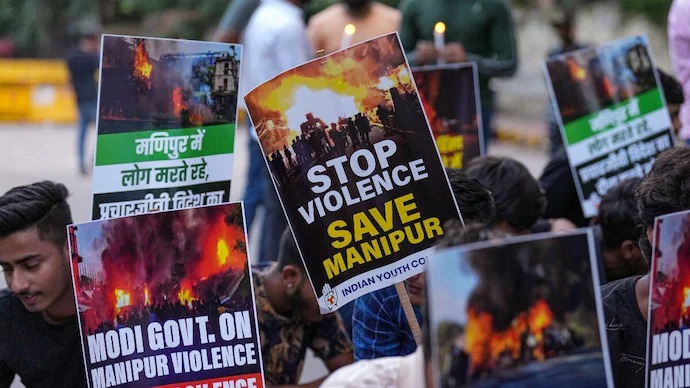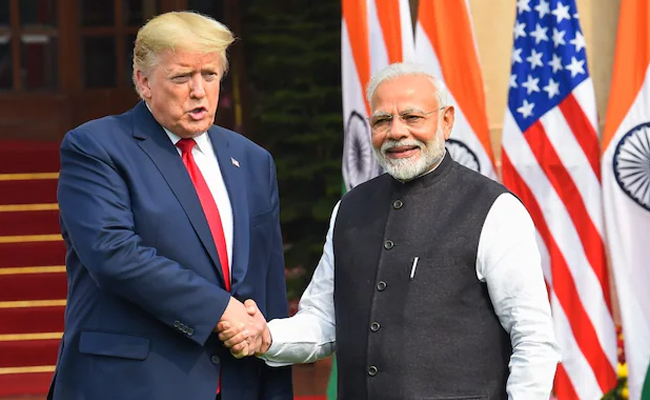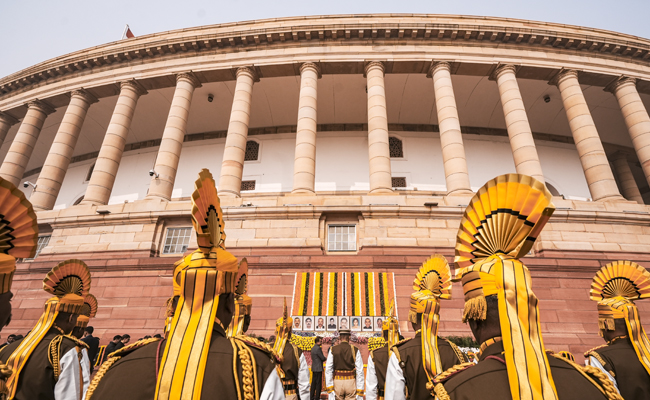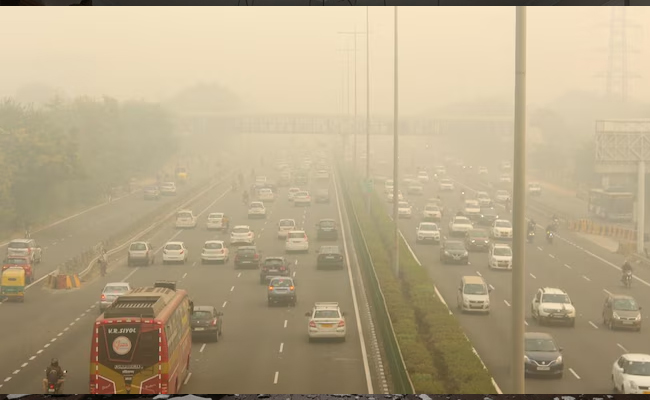New Delhi: New insights regarding the Manipur conflict have surfaced from an assessment conducted by Assam Rifles officials in the state.
The blame for much of the situation was directed towards Modi's "political authoritarianism and ambition," as well as the state government led by Chief Minister N Biren Singh, who supports the Hindu nationalist Bharatiya Janata Party (BJP).
The Assam Rifles, a paramilitary group under the federal government, has a contentious past. It is the oldest paramilitary force in the nation alongside the army and is responsible for maintaining law and order in the northeastern region.
The assessment, presented in a PowerPoint presentation in late 2023, was reviewed by The Reporters' Collective (TRC), though the officers who shared it chose to remain anonymous.
This marks the first public release of a report by a government body.
This development gains significance as Modi recently stated, just ahead of the upcoming general election, that the federal government's prompt actions had led to a "significant improvement" in the Manipur situation. The prime minister addressed the conflict briefly, marking one of the rare occasions he did so. Meanwhile, the Minister of Home Affairs Amit Shah has expressed confidence in the chief minister's role as a mediator, despite his lack of success in this regard. The state's two parliamentary constituencies are scheduled to vote in the initial phases of the national elections on April 19 and April 26.
The Kuki political and armed leadership is pushing for the separation of Kukiland as a distinct administrative region from Manipur, intensifying the ethnic conflict and sparking renewed calls for Kukiland during the ongoing unrest.
Moreover, the presentation highlighted that armed factions from the Kuki tribe were backing "volunteers," while militant groups from the Meitei community were supplying weapons to individuals. These developments have escalated tensions and impeded efforts by community leaders to frame the conflict as ordinary people defending themselves against the opposing community.
As per TRC's investigation, the Assam Rifles organization did not endorse the views expressed in the presentation.
However, Al Jazeera has independently examined the presentation and confirmed its authenticity.
The root cause of the violence is often attributed to the Meitei community's push for Scheduled Tribe status, which entails affirmative action benefits like government job quotas and college admissions. However, this move is rejected by other tribal groups, notably the Kuki-Zo community.
Nevertheless, Assam Rifles representatives referenced the chief minister's policies in their presentation, which they believed exacerbated tensions between the groups. Singh's firm stance on combating the drug trade and addressing social media dissent were cited as contributing factors to the conflict, among other issues.
The presentation accused Singh of fostering discord among the communities through the state's efforts to curb drug production, trade, and sale in Manipur. His staunch opposition to poppy cultivation, particularly in the high-altitude areas bordering Myanmar, reinforced the perception that Kukis were being targeted.
The presentation also highlighted the "dismantling of the law-and-order apparatus" and the "implicit backing" of the violence by state forces.
It pointed to "Meitei Revivalism" as another factor fueling the violence. This term refers to the Meitei community's longstanding aspiration to reclaim its pre-Hindu identity, predating the introduction of Hinduism in the 18th century and Manipur's integration into India in 1949. This movement spurred armed resistance and revitalized Sanamahism in the 1930s.
Two Meitei organizations, Meitei Leepun and Arambai Tenggol, were identified in the presentation as instigators of the violence.
According to police sources, Arambai Tenggol was established in 2020 "under the guidance of the titular king of Manipur and BJP Member of Parliament Leishemba Sanajaoba."
Meitei Leepun, another recently formed group, is believed to be influenced by the ideology of the Rashtriya Swayamsevak Sangh (RSS), the umbrella organization for various radical Hindu groups, including the BJP. The leader of Meitei Leepun openly pledges allegiance to Meitei leader and BJP-backed state chief minister Biren Singh.
Kuki leaders have accused Meitei Leepun and Arambai Tenggol of orchestrating attacks on their community by the Meitei group. Arambai Tenggol advocates for a more assertive Meitei nationalist stance, distinct from Hinduism, while Meitei Leepun aligns with the Hindutva movement led by the RSS and BJP.
Under the leadership of Prime Minister Narendra Modi's Union government, the northeastern state of Manipur has been engulfed in what may be the country's longest-running ethnic conflict of the twenty-first century over the past 11 months.
The conflict has resulted in 60,000 displaced individuals, 1,100 injuries, and 219 fatalities. Various armed factions have reemerged, recruiting men and youths from both communities. In the Kangpokpi region of Manipur, two Kuki-Zo "village volunteers" were killed last Saturday, with reports indicating that their bodies were mutilated. Tribal organizations alleged in a press release that the killings were carried out by "central security forces, who aided Meitei militants."
The conflict is often oversimplified as a clash between the Christian Kuki-Zo and Hindu Meitei populations, reflecting the religious divisions seen in attacks on religious minorities and communal violence across India. Sanamahism, the indigenous faith of the Meitei group, is practiced alongside a syncretic version of Hinduism, while the Kuki-Zo communities are predominantly Christian. A smaller percentage of Meitei individuals identify as Muslims and Christians.
During the initial two months of the conflict, 7,831 incidents of vandalism and forced evictions were reported. Additionally, there were 189 cases of murder, assault (including sexual assault), injuries, and missing persons, along with 79 instances of widespread weapon theft.
Let the Truth be known. If you read VB and like VB, please be a VB Supporter and Help us deliver the Truth to one and all.
New Delh (PTI) The Congress on Saturday said it is perhaps not very surprising that India is not part of a US-led strategic initiative to build a secure silicon supply chain, given the "sharp downturn" in the Trump-Modi ties, and asserted that it would have been to "our advantage if we had been part of this group".
Congress general secretary in charge of communications Jairam Ramesh took a swipe at Prime Minister Narendra Modi, saying the news of India not being part of the group comes after the PM had enthusiastically posted on social media about a telephone call with his "once-upon-a-time good friend and a recipient of many hugs in Ahmedabad, Houston, and Washington DC".
In a lengthy post on X, Ramesh said, "According to some news reports, the US has excluded India from a nine-nation initiative it has launched to reduce Chinese control on high-tech supply chains. The agreement is called Pax Silica, clearly as a counter to Pax Sinica. The nations included (for the moment at least) are the US, Japan, the Republic of Korea, Singapore, the Netherlands, the United Kingdom, Israel, the United Arab Emirates, and Australia."
"Given the sharp downturn in the Trump-Modi ties since May 10th, 2025, it is perhaps not very surprising that India has not been included. Undoubtedly, it would have been to our advantage if we had been part of this group."
"This news comes a day after the PM had enthusiastically posted on his telephone call with his once-upon-a-time good friend and a recipient of many hugs in Ahmedabad, Houston, and Washington DC," the Congress leader asserted.
The new US-led strategic initiative, rooted in deep cooperation with trusted allies, has been launched to build a secure and innovation-driven silicon supply chain.
According to the US State Department, the initiative called 'Pax Silica' aims to reduce coercive dependencies, protect the materials and capabilities foundational to artificial intelligence (AI), and ensure aligned nations can develop and deploy transformative technologies at scale.
The initiative includes Japan, South Korea, Singapore, the Netherlands, the United Kingdom, Israel, the United Arab Emirates, and Australia. With the exception of India, all other QUAD countries -- Japan, Australia and the US -- are part of the new initiative.
New Delhi will host the India-AI Impact Summit 2026 on February 19-20, focusing on the principles of 'People, Planet, and Progress'. The summit, announced by Prime Minister Narendra Modi at the France AI Action Summit, will be the first-ever global AI summit hosted in the Global South.
Prime Minister Modi and US President Trump on Thursday discussed ways to sustain momentum in the bilateral economic partnership in a phone conversation amid signs of the two sides inching closer to firming up a much-awaited trade deal.
The phone call between the two leaders came on a day Indian and American negotiators concluded two-day talks on the proposed bilateral trade agreement that is expected to provide relief to India from the Trump administration's whopping 50 per cent tariffs on Indian goods.
In a social media post, Modi had described the conversation as "warm and engaging".
"We reviewed the progress in our bilateral relations and discussed regional and international developments. India and the US will continue to work together for global peace, stability and prosperity," Modi had said without making any reference to trade ties.





